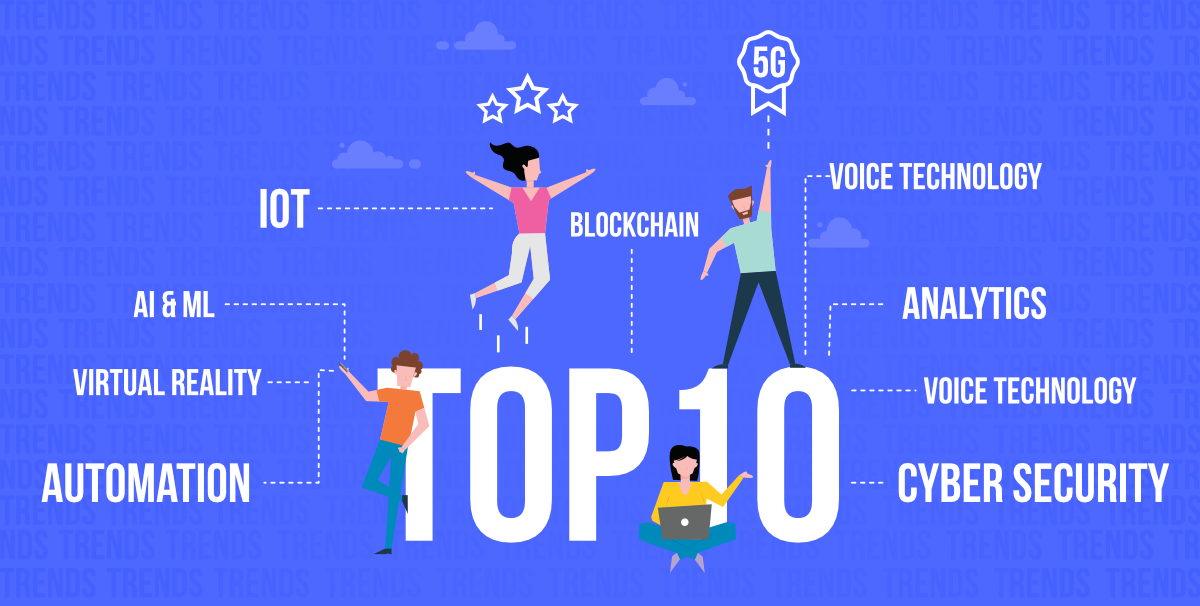Top 10 Emerging Technologies Every Engineering Student Must Know in 2025

Introduction
The engineering landscape is evolving at an unprecedented pace, driven by rapid technological advancements. As we step into 2025, staying updated with the latest technologies is crucial for engineering students aiming to excel in their careers. This blog explores the top 10 emerging technologies that every engineering student must know to stay ahead in the competitive job market.
1. Artificial Intelligence (AI) and Machine Learning (ML)
AI and ML continue to revolutionize industries by enabling automation and data-driven decision-making. From self-driving cars to predictive maintenance in industries, understanding AI concepts is essential. Engineers can benefit by learning about neural networks, deep learning, and AI model deployment.
Reference: Artificial Intelligence Overview by IBM
2. Internet of Things (IoT)
IoT connects devices to the internet, allowing seamless data exchange. Engineering students must grasp IoT architecture and applications in smart homes, healthcare, and manufacturing. Learning how sensors, cloud computing, and data analytics work together is key.
Reference: IoT Explained by Cisco
3. Quantum Computing
Quantum computing leverages quantum mechanics to perform complex computations beyond the capability of traditional computers. This technology holds potential in cryptography, drug discovery, and optimization problems. Understanding quantum bits (qubits) and quantum algorithms can give students an edge.
Reference: Quantum Computing by IBM
4. Blockchain Technology
Blockchain ensures secure and transparent transactions, impacting finance, supply chain, and even voting systems. Engineering students can explore how distributed ledgers, smart contracts, and decentralization work to solve real-world problems.
Reference: Blockchain 101 by Blockchain.com
5. Augmented Reality (AR) and Virtual Reality (VR)
AR and VR technologies are transforming entertainment, education, and training by creating immersive experiences. Engineering students can leverage these technologies for simulation, prototyping, and real-time problem-solving.
Reference: AR and VR Trends by Statista
6. 5G and Advanced Connectivity
5G technology promises ultra-fast connectivity and low latency, enabling advancements in IoT, smart cities, and autonomous vehicles. Understanding the impact of 5G infrastructure, spectrum management, and network slicing is crucial.
Reference: 5G Explained by Qualcomm
7. Sustainable and Green Technologies
With climate change concerns rising, sustainable engineering solutions in energy, transportation, and construction are gaining traction. Knowledge of renewable energy, eco-friendly materials, and carbon-neutral technologies is essential for a sustainable future.
Reference: Green Technology Insights by IRENA
8. Cybersecurity
As digital transformation grows, so do cybersecurity threats. Engineers must be proficient in securing networks, systems, and data to protect against cyber-attacks. Learning about ethical hacking, cryptography, and security frameworks is vital.
Reference: Cybersecurity Basics by CISA
9. Biotechnology and Bioengineering
Biotechnology combines biology and technology to develop products that improve health and the environment. From genetic engineering to biofuels, this field offers immense potential. Engineering students can explore gene editing, biomaterials, and bioinformatics.
Reference: Biotechnology Overview by WHO
10. Autonomous Systems and Robotics
Robotics and autonomous systems are revolutionizing industries by enhancing efficiency and safety. Engineering students should explore robotics programming, automation tools, and AI integration to build innovative solutions.
Reference: Robotics Trends by IEEE
Conclusion
Staying ahead in engineering requires continuous learning and adaptability. By understanding and mastering these emerging technologies, engineering students can enhance their employability and contribute to innovative solutions. Embrace these technologies today and participate in hackathons, internships & cohorts with FLIPR LABS to become a future-ready engineer.
What Do You Think?
Which of these emerging technologies do you find the most exciting or challenging? Share your thoughts and experiences in the comments below!